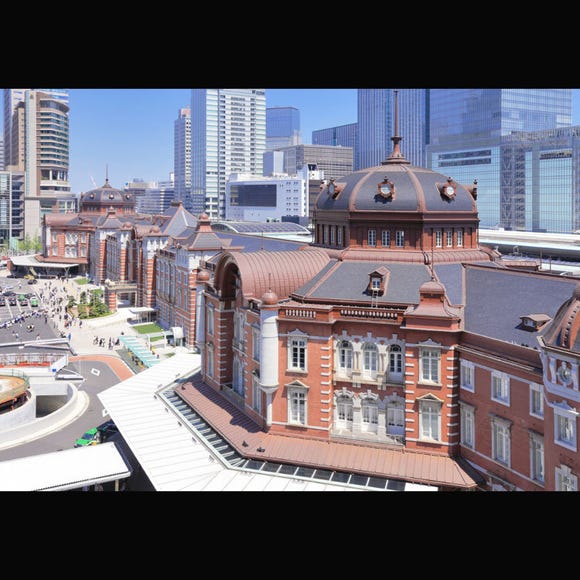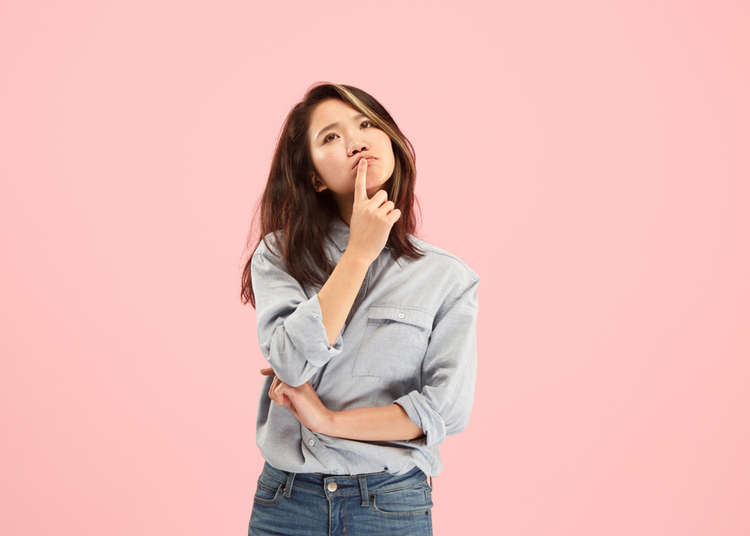
15 Things You've Thought About Japanese People (That Aren't True?)
- Written by: Nao
The stereotype by nationality is what follows you everywhere when you go abroad or meet people from overseas.
As a Japanese writer who has lived abroad, I have personally gone through several awkward situations where I didn't meet non-Japanese people's expectations, which resulted in them experiencing a kind of culture shock. And, of course, it is not only me who has had this kind of experience.
So, here are 15 stereotypes most Japanese have to deal with and that we are tired of being expected to be!
1. Shy, quiet

If you have had an opportunity to immerse yourself in a group of Japanese, you must have realised that not many Japanese are actually shy or quiet. Yet, there's an image among most people that the Japanese are extremely reserved and shy.
One reason, I suspect, for this is because most Japanese are not confident in English. Hence, when they are abroad, they tend to speak in a shaking, tiny voice or even opt to keep their mouths shut. Additionally, the Japanese are aware that their culture is different to that of the countries they are visiting, and losing face is a big concern many Japanese travellers have.
So usually the Japanese like to understand and become a little more familiar with the cultural differences (sort of sit by as observers) and then once they are confident that they can differentiate between the cultures they immerse themselves into groups more readily. But once they finally become relaxed, they will no longer be quiet!
2. Love sushi, fish
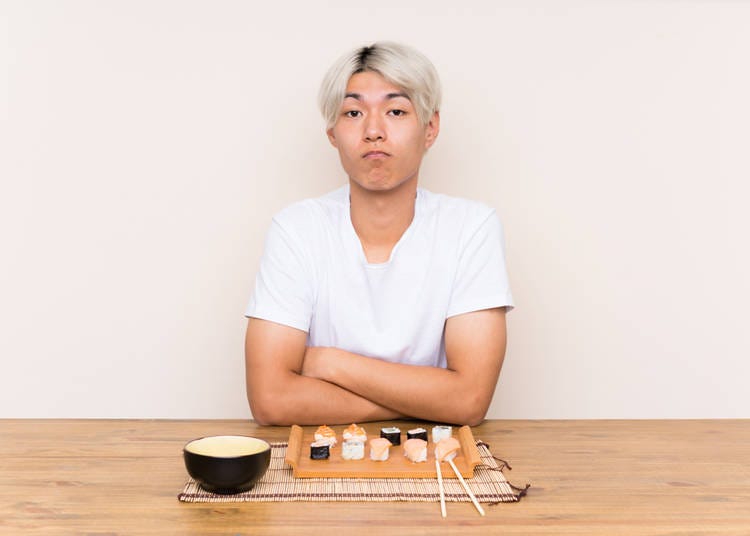
Just as not all Brits drink tea or eat fish & chips daily and just as not all Americans are crazy about McDonald’s and doughnuts, not all Japanese love sushi or raw fish.
Still, it is true that there is easy access to sushi and raw fish in this country as these restaurants tend to be most people's ‘up the road’ locals. What’s more as with all other countries good sushi isn’t cheap, so for most people it is a treat they have once or twice a week rather than their go to meal. Also, there are a lot of options in Japan so sushi is yet another choice rather than, as most outsiders believe, the only choice.
But alas, don't be disappointed, you sushi lovers - you can still get your hands on the best sushi around here!
3. Love anime
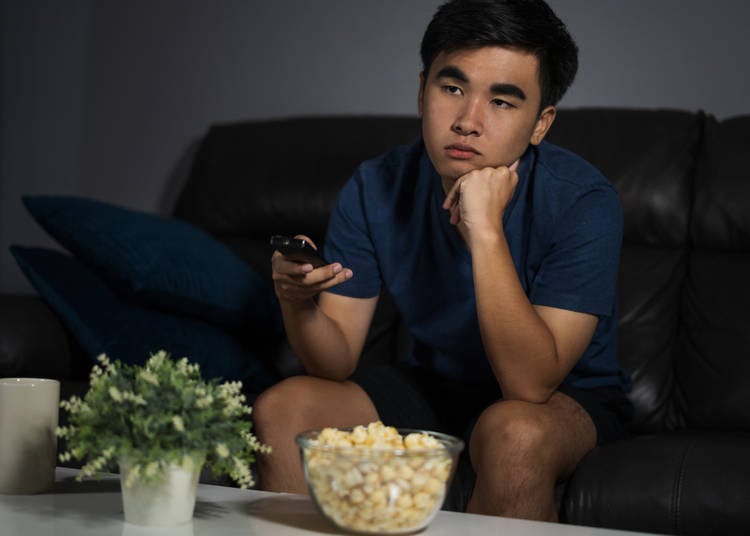
Like sushi, here is another widely believed stereotype, due to its easy access and wide range of choices of animation here in Japan. And it is also true that animation is a common TV program, compared to any other country.
However, it doesn't mean that anime is everyone's cuppa tea. So you might want to ask and find out if the Japanese person you are talking to is actually a fan of it before you burst into speech about the one you've recently watched and loved.
4. Love kawaii stuff

As a Japanese woman, I've come across quite a lot of people who assumed that I must obsessively love kawaii (cute) stuff, and sometimes people even believed I wanted to be kawaii.
As a matter of fact, there is still an old-hat kind-of-Asian-ish belief, the younger, the better, which basically means if girls remain younger they will tend to be adorable. At the same time, Japan is now becoming more and more globalized year by year. Therefore, there are also people who try appearing more mature and sophisticated to represent what they naturally are, and they are unhappy and feel patronised to be treated as kawaii creatures.
Just like sushi, Kawaii is a choice, not the choice.
5. Good at maths

When I was working in a restaurant overseas, I was often asked "what's 5 times 18.99?" by colleagues because they believed that I was a walking talking calculator, absolutely brilliant at math based on my nationality.
But my answer was "mmm maybe 100-ish?" or "well, here's a calculator!" just like any other person (Japanese
or not) would.
The reason this stereotype exists, where people believe all Japanese are able to do complicated math problems in their heads, actually comes from a selected number of Japanese who have learnt how to use a soroban, a traditional wooden abacus.
These people are able to do math without anything but their brains. And these impressive people are most likely the root of this stereotype. But it is important to recognise that normal people who can’t add in their heads outnumber those who can.
6. Know best when it comes to technology

Japan may be a high-tech equipped country, full of day to day new inventions. But this only means we have smart inventors and creators, and doesn’t mean we are all experts in technology, unfortunately!
Of course, we may know how to use some gadgets that we are used to, such as Washlet on toilets, better than those who are not familiar with it. But we are equally in the process of learning about new developments just like any other nationalities.
7. Always working hard

In my opinion, the stereotype that the Japanese are worker-bees is partially true. Because for most Japanese, the work environment is quite harsh; for example, we aren't allowed to have a chat during our shift at a bookshop; we are trained and used to working in the hardest and most strict way naturally.
But the deeper truth is, we are not necessarily always willing to work hard. Sometimes we don't feel like working and wish to be lazy!
This stereotype is also linked to companies creating high competition between and among their members of staff, for example most companies in Japan also finish their work day at 5:30/6pm, however as an unwritten rule no-one actually leaves then.
Most workers are fully aware of this hidden rule that you shouldn’t be the first to leave, and this comes from wanting to show the managers that they are the hardest working, motivated, dedicated and that this is the only route to a promotion/higher position.
8. Always very organized

I suppose many foreign people get the idea of this stereotype when they see the organization of a city such as Tokyo, especially during the busy-hours when people neatly form a queue to get on a train or walk to one side like a flock of sheep in a field.
But if you see a person individually, their organizational skills are completely up to that particular person. And, I don't see many gaps between other nationalities and Japanese when it comes to tidiness.
Some Japanese always lose track of time and are tardy, and some live in a chaotic, messy flat! Just like everywhere in Japan is also divided into neat-freaks and slobs!
9. Good with their hands
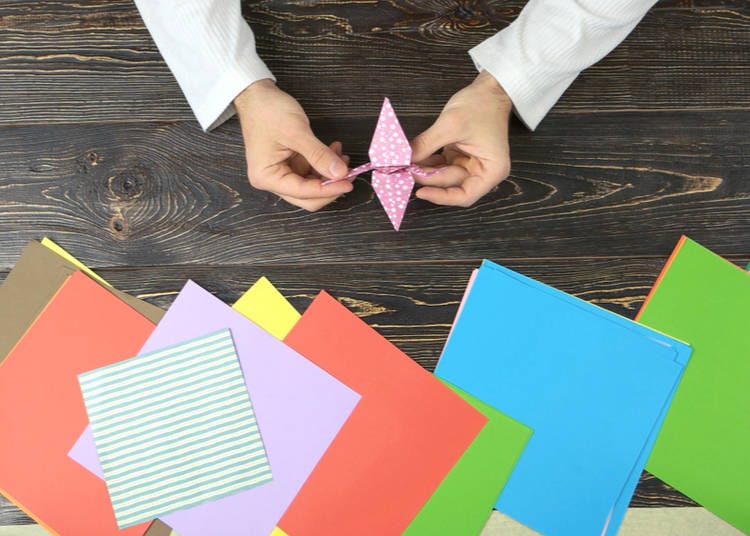
In Japan, we have job specialists called "shokunin" - quite similar to a German meister. And these people are generally extremely good with their hands. So, it is said that the Japanese are potentially very good with their hands.
However, because shokunin, the job experts, are now struggling to find successors, many traditional jobs and handcrafts are in danger of disappearing, as general people have little chance to improve their skills with their hands. Hence, I'd say this stereotype is no longer accurate.
10. Wearing Kimono every day; needless to say, everybody knows how to wear a kimono
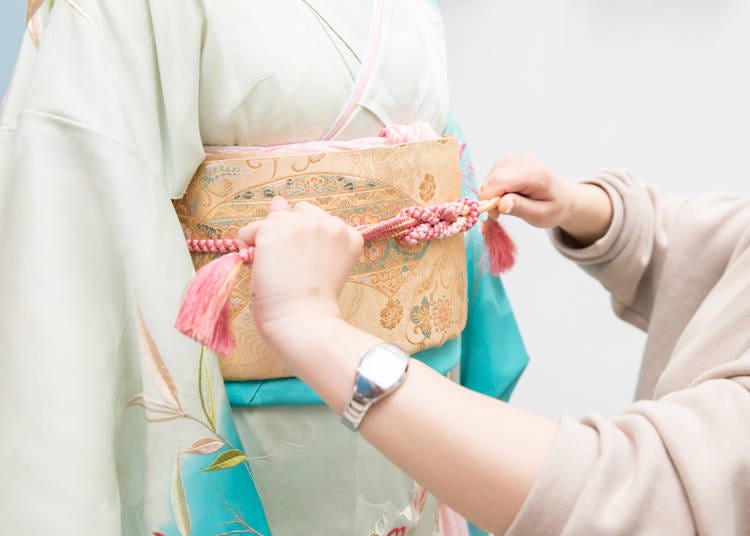
Kimono are a complicated garment to wear, unlike its simple-ish looking form - especially the ones for women. And it is also not suitable for all the daily life grinds, as it limits your range of motion.
So, after we started to import western clothing, we gradually opted to wearing that instead, and today, the kimono has become a special garment for a special occasions. And sadly, the younger Japanese often don't know how to wear it either. When people wish to dress up in one, they will often go to a kimono rental shop, whose staff will assist in the wearing of it.
11. Eat Japanese food every day
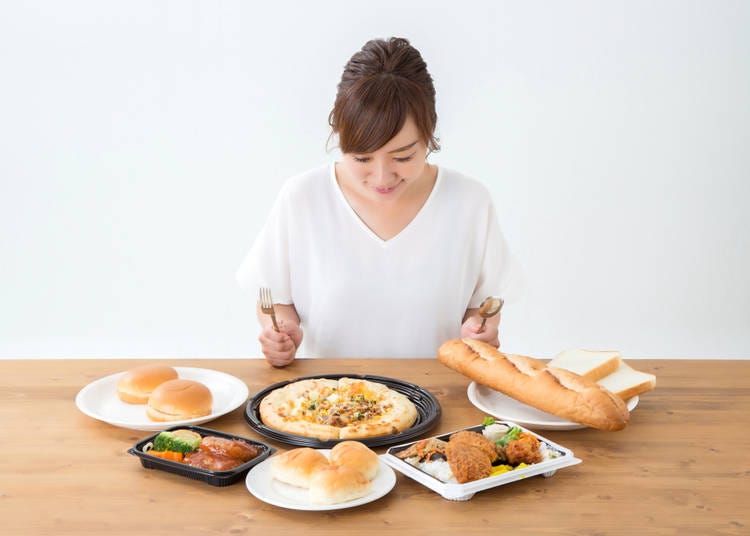
While, like all people from all over the world, our home cooked food is special, I mean nothing beats grandma’s dishes, but realistically just like all other fast-paced cities, Japanese people don’t have time for a sit down meal (especially for lunch).
When I compare my lunch break in Tokyo, I don’t see a lot of differences between it to the lunch break I had in London. Both lunch breaks are short, and time is precious, so usually just grabbing something quick and easy is the key.
Globalization has also played a big role in why Japanese people are eating less Japanese food every day; the access to various dishes and flavors means more choice. Like all nationalities, the Japanese are curious and adventurous and food is always the best place to start when wanting to discover something new.
I would say that the most popular non-Japanese food in Japan is now hamburgers, most likely due to it being so easy to grab and go, and frankly delicious. Would you believe some people eat it daily? Sometimes twice a day!
12. Can't handle much alcohol

This stereotype is really false; just like with all nationalities it differs from person to person. You have your hard-core drinkers who can go hard all night and you have your lightweights who are swaying after 2 glasses of wine.
Many people seem to believe that the Japanese get drunk quick and have these images of drunk people singing, vomiting and sleeping on the streets, or the worst one yet that they take of their ties and tie it around their heads Rambo style. And although this all exists, normal happy, tipsy people exist too.
I don’t think the Japanese have any more of a dysfunctional relationship with alcohol than other nationalities with drinking cultures - the Brits, French, Germans, etc. We all have ‘those’ types of people who drink too much and simply don’t know their limits.
13. Always polite

It is universally expected of a Japanese person to be polite, which truthfully is an overwhelming and weighty expectation to bestow on our shoulders. Like everyone we have our limits, our bad days, our mood swings, our irritations and so occasionally we snap and aren’t particularly polite when doing it.
This stereotype most likely stems from the fact that we are a bowing culture. But for us bowing is no different to a handshake or a wave.
Being polite isn’t necessarily a bad stereotype, and I would say generally, yes, we are polite. However, to have the idea that we are always polite is inaccurate and, frankly, impossible.
14. Can read/speak Chinese

Japan and China are two different countries, Japanese and Chinese are two different languages. While there are overlaps at times, meanings of character combinations can be completely different. While a simplified analogy, they are no more linked that English and French or German. Although we use some similar letters (characters), they are often used rather differently and one cannot be understood by the other.
In fact, it is possibly more popular to learn Korean in Japan than it is Chinese, as the Korean culture has been a massive trend here.
15. Can't express their opinions

This stereotype is accurate in the sense that it is linked to the Japanese education system, in which the style is very different to that of Western education. Students in Japan often learn in a passive way: the teachers imparts the information and the students learn it, with no or very little critical thinking being applied.
Expressing one's opinion is a skill, and I believe the Japanese haven’t been trained in it. Therefore, for most Japanese they need to self-develop this skill.
What’s more, as previously mentioned, Japanese people like to understand and observe their environment first, once they feel confident and sure, they will be more open to expressing themselves and giving their real opinions.
Having the idea of common types of personality based on nationality may be of help to avoid cultural shock. But as with those of other nationalities, the Japanese are not all the same after all. Why not instead forget about the stereotypes and find out diverse of Japanese people's characters?
A Japanese writer who is from a city by the sea. Started writing from the age of ten. Since then, pen and notebook have always been the best friend. Loves travelling, tea, and books.
*Prices and options mentioned are subject to change.
*Unless stated otherwise, all prices include tax.
Popular Tours & Activitiess
-

Tsukiji’s Top 3 Restaurants: Hidden Gems Loved by Locals
-

Spending Wonderful Time Alone in Shibuya - Free Cosmetics and a Hundred-Yen Bus!
-

Shibuya Cat Street: Top 5 Second Hand Shops in Harajuku
-

What’s the Difference Between "Wagyu" and "Japanese Domestic Beef"? We Asked a Popular Chef About the Surprising Differences in Ingredients
by: Naho Jishikyu
-

February 12 is Lunar New Year! Celebrate with a Delicious Delivery of Lucky Yakuzen Chicken Shabu and Hot Pot!
by: Fujico
-

Tokyo Station Top 10 Sweets Ranking!
- #best ramen tokyo
- #what to buy in ameyoko
- #what to bring to japan
- #new years in tokyo
- #best izakaya shinjuku
- #things to do tokyo
- #japanese nail trends
- #what to do in odaiba
- #onsen tattoo friendly tokyo
- #daiso
- #best sushi ginza
- #japanese convenience store snacks
- #best yakiniku shibuya
- #japanese fashion culture
- #best japanese soft drinks

















